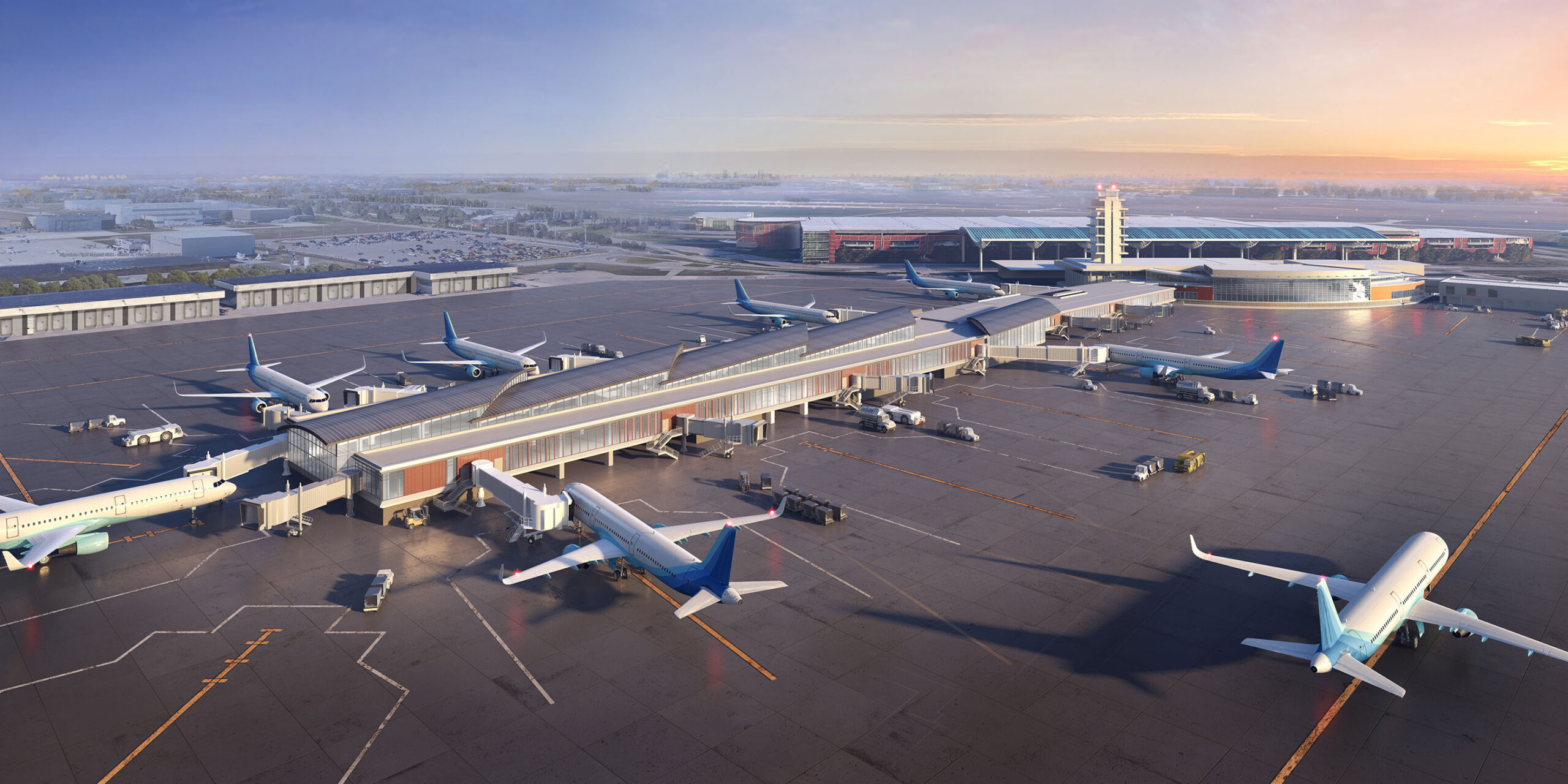After years of leaks and patchwork repairs, Flint’s Bishop International Airport is finally getting a new, energy efficient roof, thanks to $3.5 million in federal funds.
Airport officials decided to replace the roof, which has reached its end of life, in 2018. But, with little extra money for big repair projects, Bishop has been forced to continue patching holes and using buckets to catch rainwater from the leaking roof.
This upgrade is crucial for Flint Bishop International Airport, which serves over 300,000 passengers annually, ensuring a better experience for travelers and airport staff alike. The new terminal roof will be made of more energy-efficient materials, including improved insulation, to reduce the airport’s heating and cooling needs and lower its energy consumption.
The funds come from a new Federal Aviation Administration program that was created by President Biden’s infrastructure law to modernize airport terminals across the nation and make unprecedented investments in aviation infrastructure.
The infrastructure law included new funding sources to modernize airports nationwide, focusing not just on the front-end facilities like terminal rehabs, but also on runways, traffic-control towers, and back-of-house operations.
Bishop is the smallest of three metropolitan airports in Michigan to receive federal funds from the new FAA program. With Michigan’s airports supporting $22 billion in economic activity across the state, the grants will “improve the customer experience at Michigan’s major airports, help small businesses transport goods, and enhance domestic competitiveness,” according to Governor Gretchen Whitmer.
Key Facts:
- Flint’s Bishop International Airport will receive $3.5 million in federal funds to replace its leaky, end-of-life roof with a new, energy-efficient one, enhancing the experience for its 300,000+ annual passengers.
- The funding is part of President Biden’s infrastructure law, aimed at modernizing airport terminals nationwide, with Bishop being the smallest of three Michigan airports to benefit.
- This investment supports Michigan’s $22 billion economic development from airports and aligns with state efforts to improve airport facilities, boost customer experiences, and enhance domestic competitiveness.





